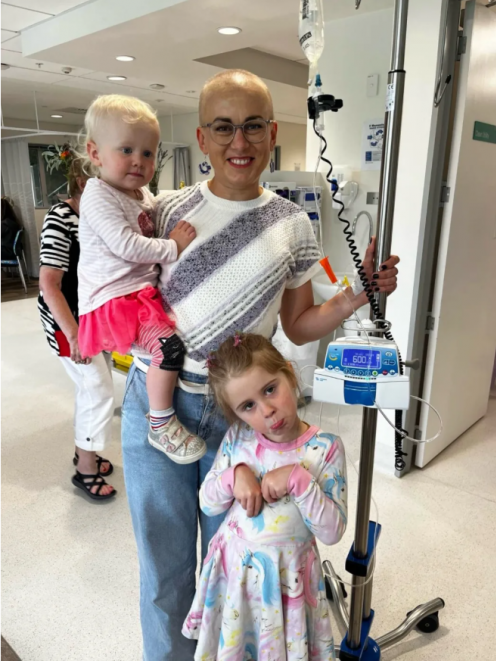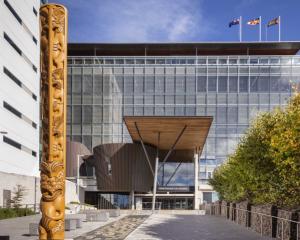
Wellington woman Amanda Broughton will have to pay $103,000 for a course of a drug, to treat her stage 3C breast cancer.
The price of Keytruda is $8485 every three weeks.
She said the fact 15 percent of that was going to the government in GST felt unfair.
It seemed wrong businesses were now able to claim 20 percent of new assets they bought to reduce their tax bills but she could not claim any of her health treatment, she said.
Broughton said she initially turned down the treatment because of the expense but her cancer resisted chemotherapy and grew.
She thought about selling the house, or calling on her KiwiSaver, but her family and friends had raised the money for her.
She has had nine infusions already and will need 17 altogether. She said the drug company only charged for the first 10.
"It's like a coffee card… you spend $100,000 and then you get discounts," she said.
Keytruda is now funded for stage four cancer as a first treatment but not for Broughton's situation.
"There are very specific criteria about who can have it and when," Broughton said.
She said it was "incredible financial pressure" and the GST alone added $1000 for every infusion.

"If I had stood up at that fundraiser for myself and said 'thank you so much for your time, your donations, your money, I'm actually going to pay 15 percent of this in tax... if you split it up the money you guys donated goes straight to the government'…"
She said while people argued that taking GST off fruit and vegetables would help people to eat more healthy, the drugs were helping to keep her alive.
"$8500 every three weeks is a significant amount of money for one person or one family to be paying. You're already facing so many different challenges, limited life expectancy, disfigurement, ongoing side effects… it's just another - I don't want to be trite - punch in the gut. You've got enough on your plate without having to think now I'm paying GST on this."
Revenue Minister Simon Watts said he acknowledged the difficult position faced by people with cancer funding their own treatment.
"It may help if I begin by explaining that New Zealand gains most of its revenue to fund public services through company and personal income tax, and GST. GST is designed to apply to the widest possible range of goods and services consumed, with minimal exceptions and a flat rate. This ensures that GST is efficient and simple to administer.
"People have differing views about which goods or services merit an exemption. Allowing an exemption for one type of good or service would lead to requests for exemptions for other deserving items. Allowing GST exemptions would also significantly increase administration and compliance costs and result in a loss of government revenue that would have to be found elsewhere, either by increasing taxes or reducing government funding for key public services such as healthcare, social welfare, education, justice, housing, and roads.
"Presently there is no discretionary provision for medical costs or treatments within the Goods and Services Tax Act 1985. The Government has no plans to change the current GST system or to include an individual's private medical costs as claimable expenses for income tax purposes. The Government's preference is to direct revenue directly to health services, such as the recent significant boost in Pharmac funding to ensure Pharmac can deliver additional vital medications," he said.













